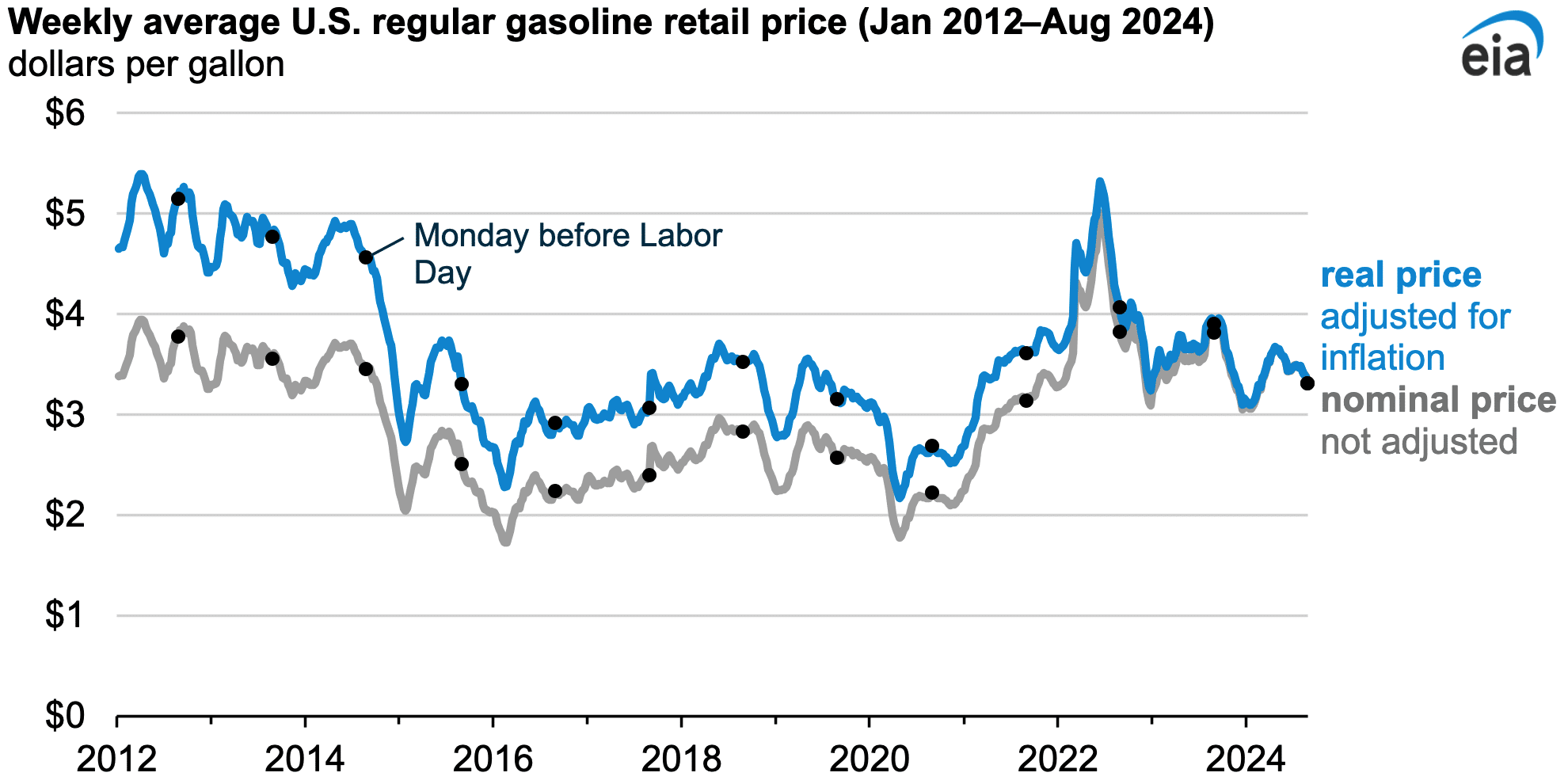U.S. Gasoline Prices 13 Percent Lower Than Last Year Heading into Labor Day Weekend: EIA

The U.S. retail price for all types of regular gasoline averaged $3.31 per gallon (gal) on Aug. 26, down 13 percent compared to the same time last year, ahead of the Labor Day weekend, according to an Aug. 29 report published by the U.S. Energy Information Administration. Lower gasoline prices heading into the holiday weekend can be attributed to the slowing down of Chinese economic growth, increasing crude oil production growth from countries outside of OPEC+ and weak growth in both U.S. and global petroleum product demand.
Members of OPEC+ on June 2 announced that the majority of their crude oil production reductions will extend into 2025, in an effort to balance global oil supply with demand. Crude oil and gasoline prices rose during the four weeks following the announcement, but have since declined and are valued at pre-announcement values.
Crude oil is a key driver of the gasoline price and the agency estimates that the crude oil price accounted for 55 percent of the gasoline price as of June 2024. Gasoline, crude oil and other petroleum products are traded on the global wholesale market, and as a result are impacted by economic activity and events in significant consuming and producing countries. As an example, slower crude oil demand growth during 2024 in China compared to previous years has put a lid on gasoline prices.
U.S. gasoline demand has been lower for the majority of 2024, compared with 2023. Despite this the agency projects U.S. demand going into Labor Day weekend to be greater than the previous year. The higher demand is compensated by U.S. inventories being three percent higher this year compared to last year.
Moreover, the price of U.S. gasoline varies across the different regions and depends largely on demand and supply fundamentals, differing fuel specifications necessitated by state laws and taxes. The West Coast has the highest gasoline prices, due to constricted local supply and demand fundamentals, limited interconnections with other refining centers and obligations for gasoline specifications that are more expensive to produce.
EnerKnol Pulses like this one are powered by the EnerKnol Platform—the first comprehensive database for real-time energy policy tracking. Sign up for a free trial below for access to key regulatory data and deep industry insights across the energy spectrum.
ACCESS FREE TRIAL